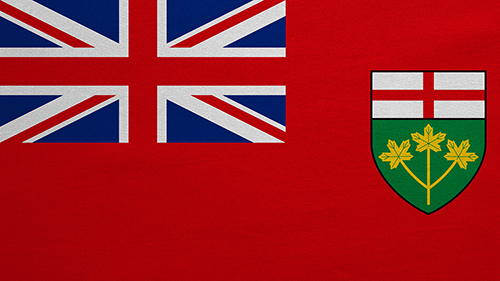
Ontario Remains among the Best in the Country for Reducing Red Tape
Provincial initiatives remove barriers to small business, supporting growth and job creation
TORONTO — The Canadian Federation of Independent Business (CFIB) has awarded Ontario an A- grade, in its annual Red Tape Report Card — for efforts throughout 2020 to remove red tape and other barriers to small business. The CFIB’s report card evaluates provinces and territories across the country on leadership and accountability in their efforts to remove regulatory burdens on business.
“Modernizing regulations and cutting red tape have always been key priorities for our government as they are key to creating an open for business climate that attracts investment and creates jobs,” said Prabmeet Sarkaria, Associate Minister of Small Business and Red Tape Reduction. “Through these initiatives we are laying the foundation for a strong economic recovery that will benefit all individuals, families and businesses, especially the small businesses that have been suffering through this pandemic.”
Ontario has received an A- grade for three consecutive years, representing the highest grade the province has ever received. The CFIB also improved the province’s grade for regulatory accountability, moving from a C to an A due to the increased transparency in burden reduction reporting. Ontario’s 2020 Burden Reduction Report included for the first time a breakdown by ministry of progress made to reduce regulatory burdens on businesses as well as the passage of the province’s red tape reduction legislation in July, the Modernizing Ontario for People and Businesses Act, 2020.
In March 2020, the government launched the Tackling the Barriers portal, an online tool to accept ideas on how government could provide flexibility or modernize to help businesses overcome the unique challenges created by COVID-19. The portal resulted in over 50 changes, including giving the green light to restaurants and bars to extend outdoor patios, making the sale of beer and wine with food takeout and delivery orders permanent, and capping delivery fees charged to restaurants. The government also permanently allowed 24/7 deliveries to retail stores, restaurants, hotels and distribution facilities to help ensure shelves stay stocked and businesses can operate efficiently, while shifting truck traffic to off peak hours.
“CFIB commends Minister Sarkaria for his leadership in keeping red tape reduction a priority during COVID-19,” said Julie Kwiecinski, CFIB’s Director of Provincial Affairs, Ontario. “The Ontario government can further help small businesses by maintaining this laser focus for the rest of the pandemic and into Ontario’s economic recovery phase.”
In the past year, Ontario has also passed three high-impact burden reduction bills: the COVID-19 Economic Recovery Act , the Main Street Recovery Act, 2020 and the Better for People, Smarter for Business Act, 2020. These measures are designed to remove regulatory roadblocks, support businesses on the ground, and help government deliver clear and effective rules that promote public health and safeguard the environment without sacrificing innovation, growth and opportunity.
“It’s been tough this last year, and we’re not alone. But Minister Sarkaria and his partner ministers’ efforts to allow us to sell alcohol with delivery orders, help restaurants to extend outdoor patio space, and cap fees paid to food delivery companies have all been lifelines for us,” said Jason Russo, owner of Brampton’s J Red & Co. restaurant. “Modernizing and providing flexible rules during this crisis have been critical pieces to our small business, and have given us a new means to survive and continue serving the community we love.”
